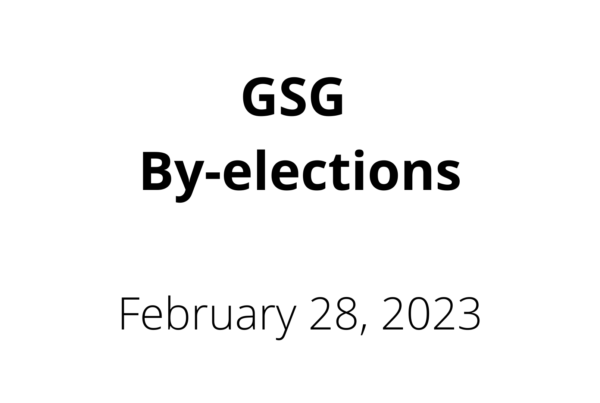Dear:
- Erasmus+,
- European Commission,
- European Education and Culture Executive Agency (EACEA),
- The following national agencies:
- Austria
- OeAD-GmbH – Agentur für Bildung und Internationalisierung,
- Belgium
- YIA-BEFL – JINT,
- YIA-BEFR – BIJ – Bureau International Jeunesse (BIJ)
- YIA-BEDE – Jugendbüro der Deutschsprachigen Gemeinschaft V.o.G.
- EPOS vzw
- AEF-Europe
- Bulgaria
- Human Resource Development Centre (HRDC)
- Croatia
- Agency for Mobility and EU Programmes Agencija za mobilnost i programe Europske unije (AMPEU)
- Cyprus
- Foundation for the Management of European Lifelong Learning Programmes
- Youth Board of Cyprus
- Czechia
- Dům zahraniční spolupráce (DZS) Czech National Agency for International Education and Research
- Denmark
- Danish Agency for Science and Higher Education
- Estonia
- Erasmus+ and European Solidarity Corps Estonian Agency
- Finland
- Finnish National Agency for Education (EDUFI)
- France
- Agence du Service Civique
- Agence Erasmus+ France/Education Formation – 2E2F
- Germany
- JUGEND für Europa
- Pädagogischer Austauschdienst der Kultusministerkonferenz, Nationale Agentur für EU-Programme im Schulbereich (PA)
- Nationale Agentur Bildung für Europa beim Bundesinstitut für Berufsbildung (BiBB)
- Nationale Agentur für Erasmus+ Hochschulzusammenarbeit (NA-DAAD)
- Greece
- Youth and Lifelong Learning Foundation (I.NE.DI.VI.M)
- Greek State Scholarship’s Foundation (IKY)
- Hungary
- Tempus Public Foundation TPF
- Iceland
- The Icelandic Centre for Research (Erasmus+ National Agency in Iceland – education and sports)
- Ireland
- The Higher Education Authority (HEA)
- Léargas
- Italy
- Agenzia nazionale per i giovani (ANG)
- Agenzia Nazionale Erasmus+ (INDIRE)
- Istituto per l’analisi delle politiche pubbliche (INAPP)
- Latvia
- Jaunatnes starptautisko programmu aģentūra
- Valsts izglītības attīstības aģentūra (VIAA)
- Liechtenstein
- Agentur für Internationale Bildungsangelegenheiten (AIBA)
- Lithuania
- Education Exchanges Support Foundation
- Agency of Youth Affairs (JRA)
- Luxembourg
- Anefore a.s.b.l, L’Agence nationale chargée de la mise en oeuvre des programmes européens d’éducation et de formation tout au long de la vie
- Malta
- European Union Programmes Agency (EUPA)
- Netherlands
- Nationaal Agentschap Erasmus+ Onderwijs & Training
- Nederlands Jeugdinstituut National Agency Erasmus+ Youth (NJI)
- Norway
- Bufdir – Barne-, ungdoms- og familiedirektoratet
- Norwegian Directorate for Higher Education and Skills
- Poland
- Foundation for the Development of the Education System (FRSE)
- Portugal
- Agência Nacional para a gestão do programa Juventude em Acção
- Agência Nacional Erasmus+ Educação e Formação (PROALV)
- Republic of North Macedonia
- National Agency for European Educational Programmes and Mobility (NAEEPM)
- Romania
- Agentia Nationala pentru Programe Comunitare in Domeniul Educatiei si Formarii Profesionale (ANPCDEFP)
- Serbia
- Foundation Tempus – Erasmus+ programme – Preparatory measures
- Slovakia
- IUVENTA – Slovak Youth Institute (YIA-SK)
- Slovenská akademická asociácia pre medzinárodnú spoluprácu (SAAIC)
- Slovenia
- Zavod MOVIT NA MLADINA
- Center Republike Slovenije za mobilnost in evropske programe izobraževanja in usposabljanja (CMEPIUS)
- Spain
- Servicio Español Para la Internacionalización de la Educación (SEPIE)
- YIA-ES – AGENCIA NACIONAL ESPAÑOLA DE LA JUVENTUD (INJUVE)
- Sweden
- Swedish Agency for Youth and Civil Society (MUCF)
- Swedish Council for Higher Education (UHR)
- Turkey
- The Centre for European Union Education and Youth Programmes (CEUEYP)
- United Kingdom
- British Council, in partnership with Ecorys UK – Ecorys UK
- British Council, in partnership with Ecorys UK – British Council
- Austria
The Global Student Government (GSG) was formed in 2022 by a coalition of student governments around the world in the wake of growing global challenges to student democracy. These challenges have caused substantial decreases to student government budgets, which have resulted in a reduction in the frequency and quality of student activities. In the worst cases, some student governments have collapsed, leaving gaps in student representation and service provision. The GSG seeks to rebuild student democracy, advocate for students at international levels, and strengthen the capacities of its member organizations. The GSG’s members collectively represent millions of students both in Europe and around the world.
From November 25-27, 2022, the GSG held its first Legislative Assembly, which consisted of discussions among member organizations about student government-related topics and voting on motions. At the Legislative Assembly, multiple GSG member organizations with a presence in Europe expressed that recent changes to Erasmus funding criteria, including a requirement for a student organization applying for funding to have paid staff members, has resulted in student governments that are completely volunteer-run no longer receiving funding that they have relied upon for years to organize conferences and other activities to improve the education experience of their students.
At a time when the world is returning to in-person activities after the COVID-19 pandemic and its accompanying challenges for organizations, we believe it is important that student governments have sufficient funding to organize events and activities that enrich the student experience. Student organizations should receive funding regardless of whether or not they employ staff and regardless of the size of their budgets. We believe that additional support for student governments needs to be created following the changes to Erasmus funding criteria.
The GSG requests a meeting with Erasmus, EACEA, and other relevant stakeholders to discuss ways our organizations can collaborate on initiatives to improve funding opportunities for student governments, particularly those that are completely operated by volunteers. We hope that Erasmus will accept our meeting request and be open to collaboration on this topic, including but not limited to brainstorming and project implementation.
Yours in education,
The Global Student Government
president@globalstudentgovernment.org | globalstudentgovernment.org | LinkedIn

